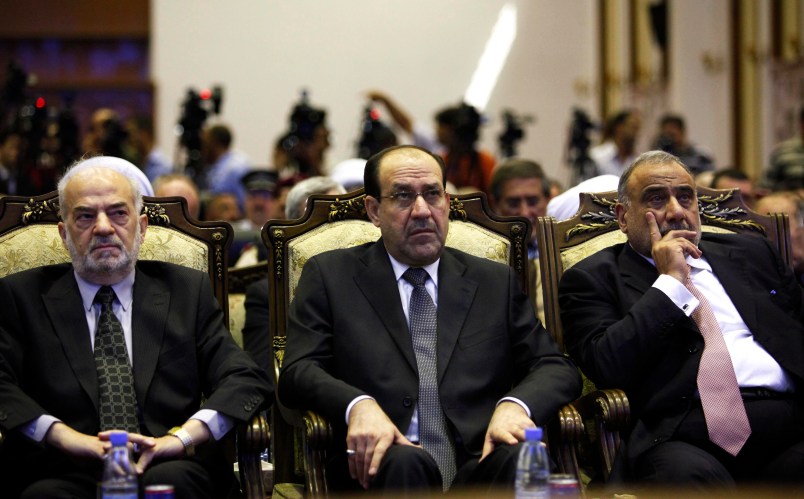BAGHDAD (AP) — Iraq’s new president on Monday snubbed the powerful incumbent Prime Minister Nouri al-Maliki andnominated the deputy parliament speaker to form the new government, raising fears of more infighting in the government as country faces the threat of Sunni militants in the north.
In a televised address Fouad Massoum gave Haider al-Ibadi 30 days to form a new government and present it toparliament for approval, expressing his hope he would succeed.
Al-Ibadi, who pledged to form a government to “protect the Iraqi people,” was nominated for the post by the Iraqi National Alliance, a coalition of Shiite parties that al-Maliki’s State of Law is part of, but has turned against him.
Al-Maliki’s Shiite-dominated bloc won the most parliament seats in April elections and the prime minister sees himself as rightfully keeping the post. In a midnight speech, al-Maliki said he was filing a suit against the president for neglecting to name him prime minister by Sunday’s deadline and all but demanded he be renominated.
Critics say al-Maliki, a Shiite, contributed to the crisis by monopolizing power and pursuing a sectarian agenda that alienated the country’s Sunni and Kurdish minorities.
Al-Ibadi’s nomination came hours after al-Maliki deployed his elite security forces in the streets of Baghdad, partially closed two main streets — popular spots for pro and anti-government rallies — as hundreds of his supporters took to the streets.
“We are with you, al-Maliki,” they shouted, waving posters of the incumbent premier, singing and dancing.
Mohammed al-Ogeili, a lawmaker from al-Maliki’s list, rejected the nomination of al-Ibadi arguing that this move “runs against the constitution” because al-Maliki’s party is the largest bloc and the National Alliance has no right to present any candidate.
“This decision would lead the country to a big problem and the president bears full responsibility for this situation,” he told The Associated Press.
Also Monday, senior U.S. officials said the Obama administration, which launched airdrops and airstrikes last week to support Kurdish and Iraqi forces battling militants from the Islamic State group, has begun directly providing weapons to the Kurdish peshmerga forces who have started to make gains against the al-Qaida breakaway group.
Copyright 2014 The Associated Press. All rights reserved. This material may not be published, broadcast, rewritten or redistributed.







Question for John McCain: If we had left troops in Iraq would they now be protecting Maliki?